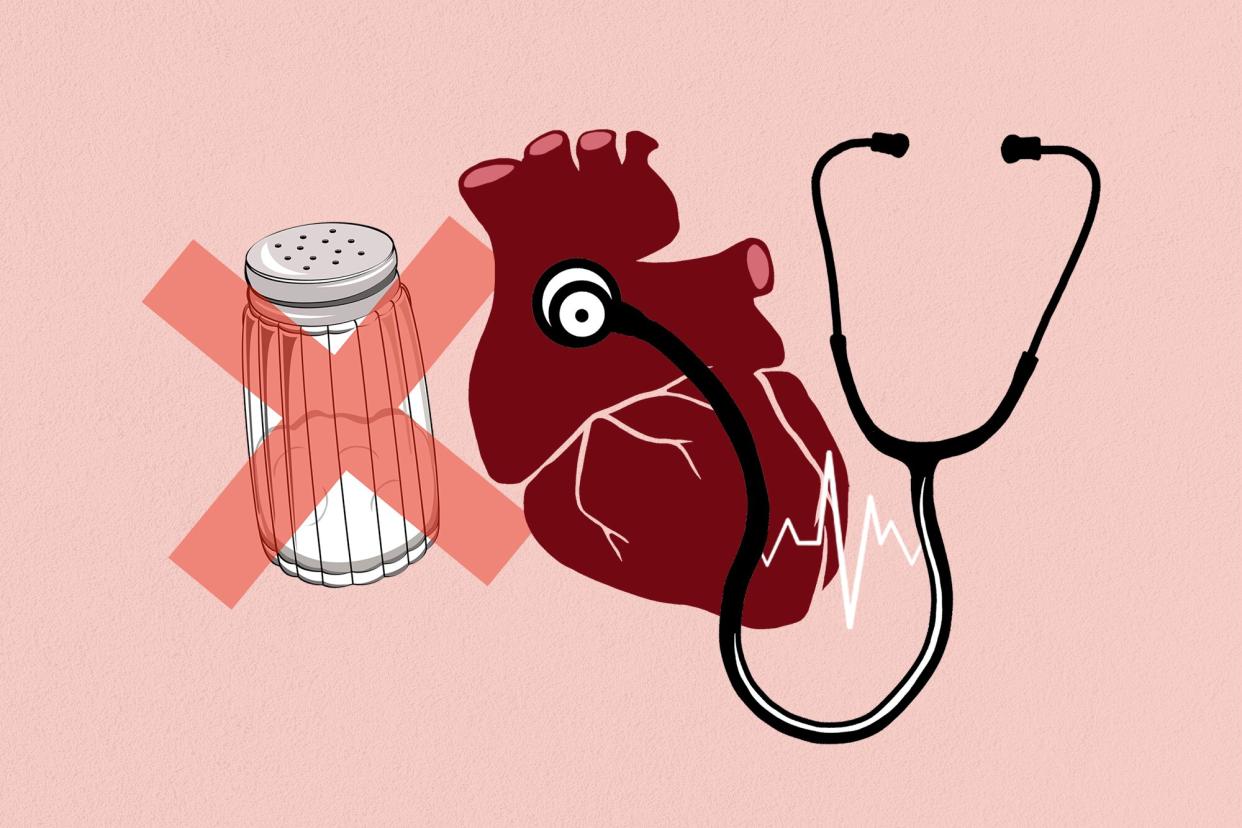Choosing Salt Substitutes May Lower Risk for Heart Disease by 13%, According to New Research

Getty Images
True, too much sodium—which the American Heart Association defines as more than 2,300 milligrams (about 1 teaspoon of salt) or 1,500 milligrams if you have high blood pressure—can impact your health in many ways. But take heart: You need not feast on a totally sodium-free diet to keep your blood pressure in check, improve your quality of life and steer clear of increased risk for cardiovascular disease.
According to a new review of 21 studies published online in the British Cardiovascular Society's journal Heart on August 9, 2022, reducing sodium intake by opting for salt substitutes instead of regular salt could lower risk for early death from any cause by 11%, slash risk for heart attacks by 11% and reduce risk for heart disease by 13%.
What This Sodium Study Found
To land at these estimates, the researchers analyzed the results of 21 studies that involved nearly 32,000 participants around the globe, including in Southeast Asia, Western Europe and the Western Pacific as well as North and South America. No matter where the individual lived, regardless of age, gender identity, weight or history of high blood pressure, choosing salt substitutes as part of a strategy to limit sodium consumption to about 1,000 milligrams per day (slightly less than ½ teaspoon of salt) were linked to a healthier heart and less risk for heart attacks and heart disease.
It's especially important for certain populations to keep tabs on sodium intake, the researchers note, including those with:
High blood pressure
Kidney disease
Kidney stones (or history of having them)
Osteoporosis or its precursor condition, osteopenia
Related: 6 Sneaky Signs You Might Be Eating Too Much Salt
Since many commercial salt substitutes on the market, including Mrs. Dash, Nu-Salt and NoSalt, trade potassium for the sodium you'd normally find in salt, the researchers also looked at whether that had any negative ripple effects.
"Salt substitutes, which contain potassium chloride rather than sodium chloride, are one way to add flavor to food while reducing sodium intake," David Cutler, M.D., a family medicine physician at Providence Saint John's Health Center in California, tells Healthline. "However, people with impaired kidney function or taking certain medications must be careful not to ingest too much potassium. Still, for most people, an increased potassium diet can improve health outcomes."
Even though this study found that potassium can positively impact heart health, it's important to note that this isn't a Rx to start popping a potassium supplement.
"I would not recommend specifically adding a potassium supplement to one's diet, as potassium levels need to be tightly regulated for the body to function appropriately. However, studies such as this demonstrate that consuming potassium incorporated within a salt substitute can benefit blood pressure lowering and cardiovascular health," Rigved Tadwalkar, M.D., a board-certified cardiologist at Providence Saint John's Health Center, adds to Healthline. "We also know that consuming potassium-rich foods, including certain greens, fruits and yogurts, can decrease the risk of cardiovascular disease, mediated by the blood pressure-lowering effect."
Related: 8 Foods with More Potassium Than a Banana
The Bottom Line
This new heart-health study suggests that salt substitutes can be an effective and heart-health-supporting way to shrink your sodium consumption.
The average American's sodium intake clocks in at about 3,400 milligrams per day, according to estimates from the FDA, so it's understandable if it sounds like a big leap to get down to 1,000 milligrams. But the researchers discovered that even something as small as a 10% reduction in salt intake is enough to move the (blood pressure) needle. And those 1-to-1 salt substitutes aren't the only options to boost flavor in meals while keeping an eye on sodium consumption.
Here are a few other ways to reduce sodium intake:
Take a peek at any packaged foods you consume; many canned foods, condiments and frozen entrees are surprisingly high in sodium.
Aim to cook more often. Many chefs create recipes for maximum deliciousness rather than optimizing heart health or nutrition, so takeout and restaurant meals are usually sodium-rich. These 33 heart-healthy restaurant copycat dinners can help you cure your cravings right at home.
Reach for MSG instead of standard salt, a November 2017 study in the journal Food Science & Nutrition suggests.
Store the saltshaker in a cabinet or pantry, rather than on your dining table.
Boost flavor with fresh or dried herbs, aromatics like ginger and garlic, spices and/or citrus juice.
Fill your refrigerator, freezer and pantry with these best low-sodium foods.
Add these 30 low-sodium dinners that support healthy aging to your menu this month.

